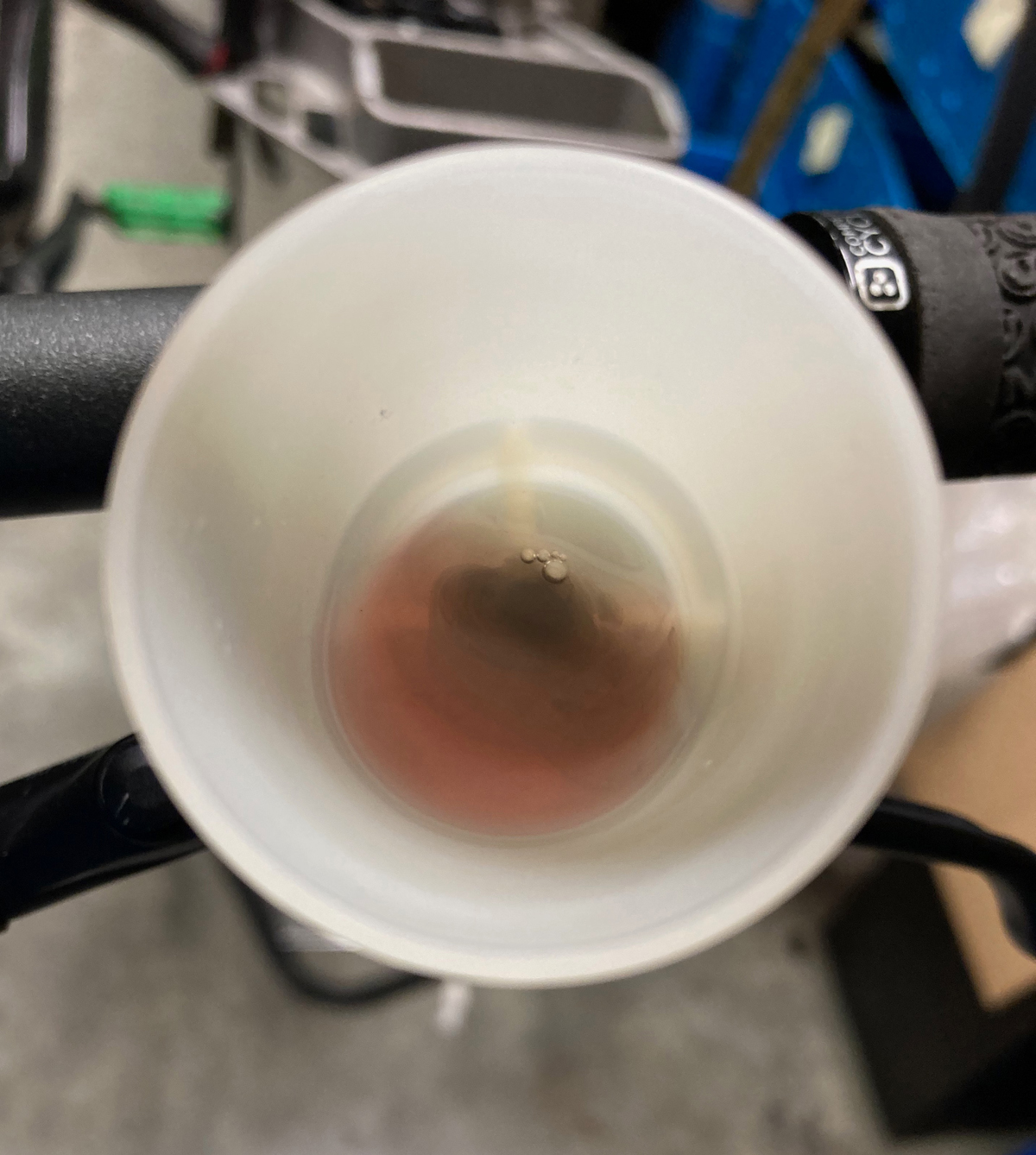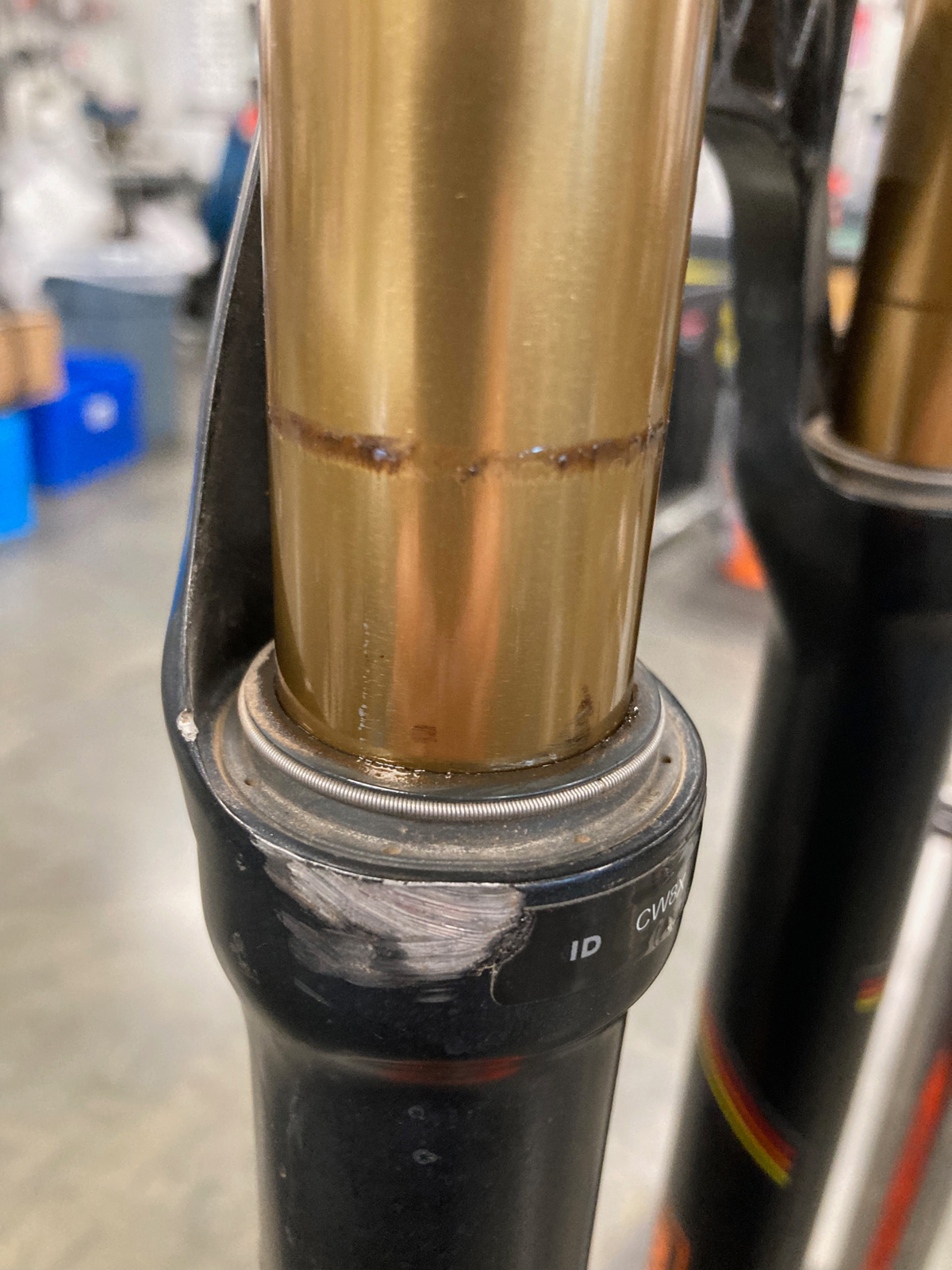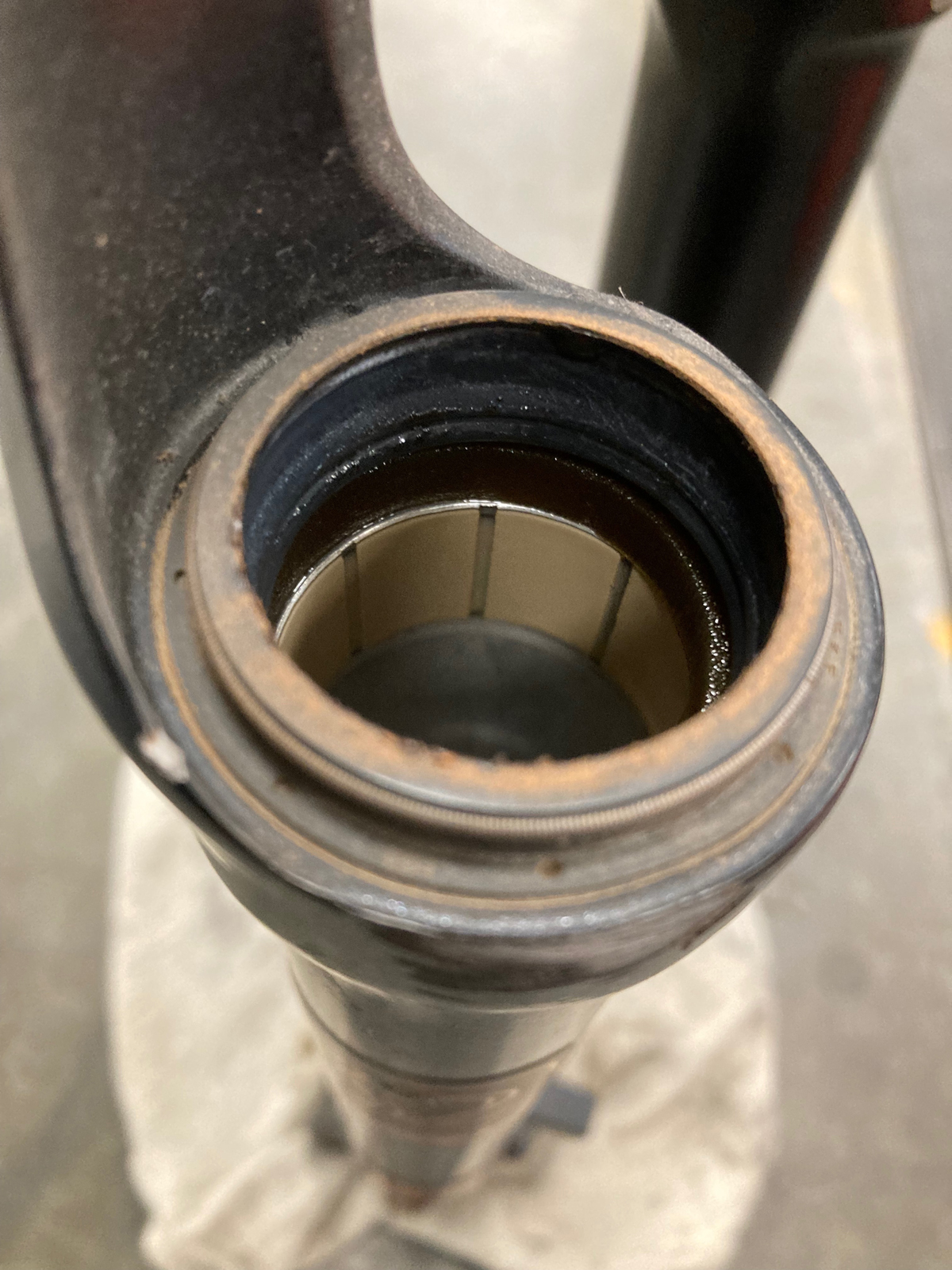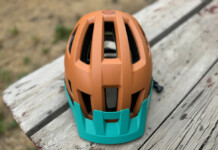By Tom Jow — By the time you read this, we will be well into the winter season. Snow came early this year and if you are like me, your summer bike gear is all but put away. But before we hang up the bike, we should clean it and perform some essential annual service.
Why now? One reason to do this maintenance now is it only needs to be done once or twice a year; so why not before we store it? Another reason, as my old friend Flo Irizarry says, “it is not good to store the bike with those dirty fluids inside”.

One system that should receive annual service is the hydraulic brakes. Because the brake pads are self-adjusting, hydraulic brakes rarely exhibit signs of needing service. It is very important however, to bleed and replace the brake fluid annually. The reason is that the fluid becomes contaminated with dirt and moisture. How does the brake system get contaminated? There are small rubber seals behind the brake pads where dirt and moisture can enter the system. Dirt, and brake pad material, in the brake fluid can cause premature wear of the seals and therefore allow fluid to leak through. Moisture can enter the system because DOT (automotive) brake fluid attracts and absorbs moisture. This moisture decreases performance by lowering the boiling point of the brake fluid. The minimum recommended fluid replacement interval for brakes using DOT fluid, SRAM for example, is annually. While mineral oil brake systems, such as Shimano and Magura, are affected less by moisture absorption, they are equally subject to dirt contamination.

Mountain bike suspension systems are also affected by dirt contamination through rubber seals. Ever notice how dirty the upper fork legs are after a dusty ride? There are seals that keep the dirt out of the internals. If the seals were so tight as to keep all this dirt out the suspension would be very harsh. Also, think about how many times that seal goes up and down that dirty fork leg in any single ride. It’s impossible to keep all the dirt out. So, to help keep dirt out of the lower leg and bushings is an oil-soaked foam ring under the seal. This foam ring catches much of the dirt that gets past the rubber seal. Eventually, the foam ring becomes saturated with dirt, slowing down the fork action and potentially contaminating the oil in the lower fork legs. This is why both RockShox and Fox Shox recommend replacing seals every fifty hours. In addition to new seals and foam rings, the lower legs should be cleaned, and fresh suspension fluid added.

Keeping our bikes clean is an important investment of time. Dirt in moving parts wears them out faster. Cleaning the exterior of the bike is easy; the task and reason are obvious to all. Dirty brake and suspension systems are less obvious. The internal systems of hydraulic brakes and suspension are hidden but the potential for premature wear is the same. There is no excuse to not take care of it now. Winter is here and there is plenty of time before the new season. Storing the bike clean means it’s ready to ride as soon as the new season arrives. Fully maintaining the bike before storage means it’s ready to roll for the whole first part of the season before needing service. Put it away clean, inside and out.
Got a bike question? Email Tom at runnerrunner.rider@gmail.com







